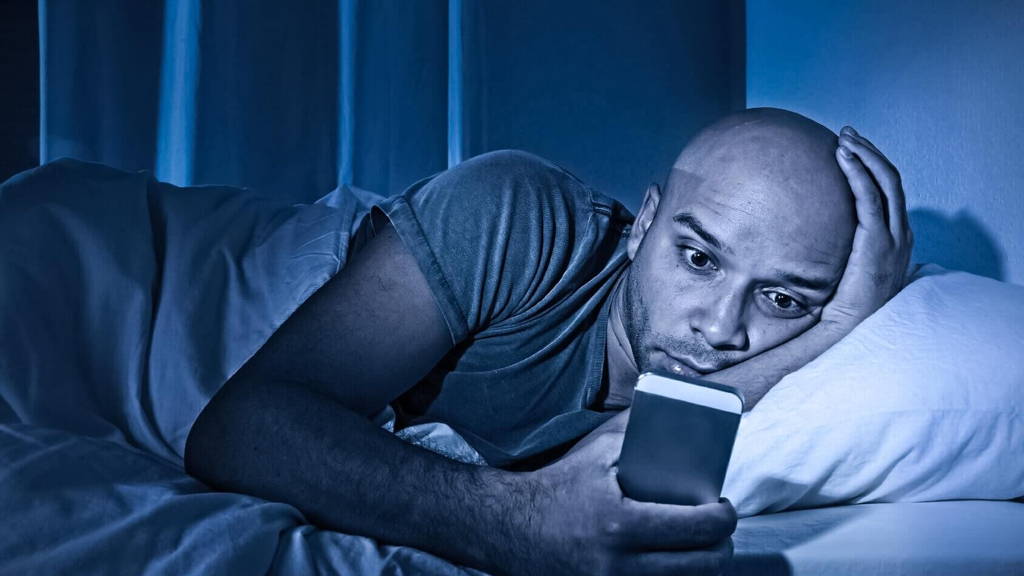The more time someone spends on their smartphone, the worse they sleep. When you use your smartphone just before going to bed, it will take longer to fall asleep, according to Amefrcian magazine Time based on a study, published in PLOS ONE.
Earlier studies also suggest that using a mobile phone effects your sleep. Some studies point out that the display causes bad sleep, because of the blue light it radiates, which suppresses the making of the sleep hormone melatonin. Another research of King's College London shows that children having a smartphone or tablet in the room sleep poorly and not enough.
The authors of the article ‘Direct Measurements of Smartphone Screen-Time: Relationships with Demographics and Sleep’ claim that the research can not accurately prove that more use of a smartphone causes bad sleep, or that the correlation is the other way around. “We can not rule out the possibility that people who can’t sleep, pass the time with watching their mobile”, so says Gregory Marcus, one of the authors of the study.
The researcher however finds the outcome of the research alarming. “There is more and more evidence that poor sleep not only effects your concentration and your mood, but can also be hazardous to different kinds of diseases”.
The researchers discovered that children don’t even have to actively use their smartphone in order to experience problems with sleeping. Just the presence of it in the bedroom is enough to have a negative effect on sleep. The research also shows the correlation between tablets/smartphones and bad sleep, too little sleep, and being sleepy at daytime.
Although the British research does not conclusively show that the devices are the cause of the problem with sleeping, the scientists recommend not to use your smartphone or tablet too many evenings. US researchers suggest the same.
Earlier studies also suggest that using a mobile phone effects your sleep. Some studies point out that the display causes bad sleep, because of the blue light it radiates, which suppresses the making of the sleep hormone melatonin. Another research of King's College London shows that children having a smartphone or tablet in the room sleep poorly and not enough.
Less good nights sleep
In the research 653 adult Americans used an app for a month that kept track of the amount of time people watched their smartphone screens. It also measured the length of their sleep and how well they slept. The participants watched their screens for an average of 3.7 minutes per hour. On average, people who use their smartphone more, sleep less.The authors of the article ‘Direct Measurements of Smartphone Screen-Time: Relationships with Demographics and Sleep’ claim that the research can not accurately prove that more use of a smartphone causes bad sleep, or that the correlation is the other way around. “We can not rule out the possibility that people who can’t sleep, pass the time with watching their mobile”, so says Gregory Marcus, one of the authors of the study.
The researcher however finds the outcome of the research alarming. “There is more and more evidence that poor sleep not only effects your concentration and your mood, but can also be hazardous to different kinds of diseases”.
A third uses mobile at night
Of all the Dutch consumers 33% uses its smartphone in the middle of the night, Deloitte reports in the annual Global Mobile Consumer Survey. The research also took place in the Netherlands. In most cases people use it to watch their clock (23%), followed by checking social media messages (9%) and reading instant messaging (8%). More than half of the Dutch respondents checks their banc accounts and 43% actually transfers money using their smartphone. Deloitte’s numbers are highest at the target group 18/24 years: 54%.Bad sleeping teenagers
Children with a smartphone or tablet in their bedroom, sleep poorly and too little, even if they are not using the device, according to a recent study from King's College London. (http://jamanetwork.com/journals/jamapediatrics/fullarticle/2571467). The results of this research are published in JAMA Pediatrics. This study compared data from 20 previously performed studies and checked for the correlation between the quality of sleep and the use of media. These studies include 125.000 teenagers with an average age of 14.The researchers discovered that children don’t even have to actively use their smartphone in order to experience problems with sleeping. Just the presence of it in the bedroom is enough to have a negative effect on sleep. The research also shows the correlation between tablets/smartphones and bad sleep, too little sleep, and being sleepy at daytime.
Although the British research does not conclusively show that the devices are the cause of the problem with sleeping, the scientists recommend not to use your smartphone or tablet too many evenings. US researchers suggest the same.






